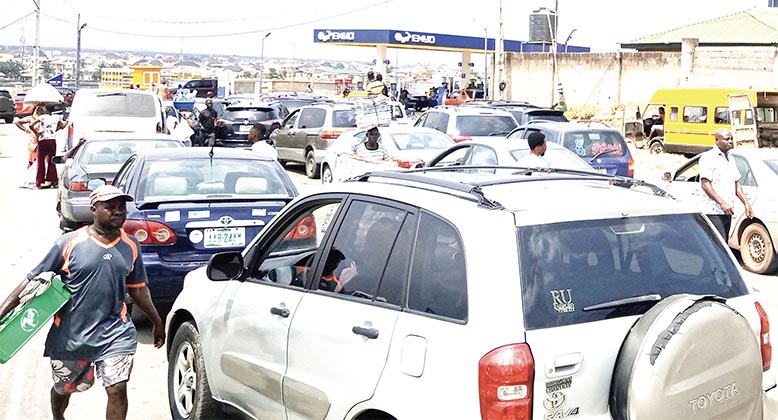The executive vice president, downstream, of the Nigerian National Petroleum Company (NNPC) Limited, Adeyemi Adetunju, disclosed on Tuesday evening the reason for the recent fuel scarcity being experienced by residents in Lagos, Abuja, and other major cities in Nigeria.
Driving the news
The NNPC official stated that ongoing road projects around Apapa created a gridlock situation which prevented trucks from accessing depots in the region. Adeyemi, however, noted that “the gridlock is easing out and NNPC has programmed vessels and trucks to unconstrained depots and massive load outs from depots to various states are closely being monitored.”
- According to him, the fuel scarcity in Abuja is an up-shot of the gridlock in Lagos.
Why it matters
It has become a sad routine for residents in major cities in Nigeria, including Lagos and Abuja, to experience fuel scarcity, particularly towards the end of the year. This time it is coming at a time where Nigeria’s annual inflation rate rose for the ninth straight month to 21.09% in October 2022 from 20.77% in September.
What they are saying
The top NNPC official reassured Nigerians that the corporation had sufficient products, and has significantly increased “product loading, including 24-hour operations in selected depots and extended hours at strategic stations to ensure products’ sufficiency nationwide.’’ NNPC is also working with other industry stakeholders to return to normalcy.
The big picture
Fuel scarcity doesn’t just represent a cut in the number of cars on the roads, it means a disruption in the smooth conduct of residents’ businesses. Fuel scarcity also means an increase in the cost of transportation. And with the festive season approaching, the effect of this crisis could be astronomical on prices of goods and services.

